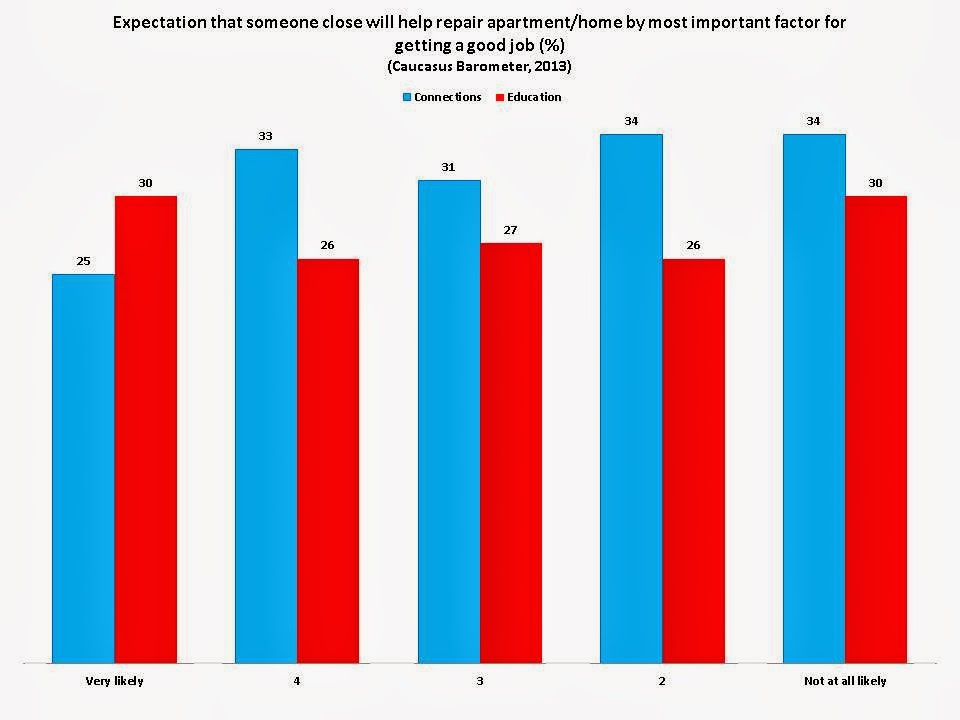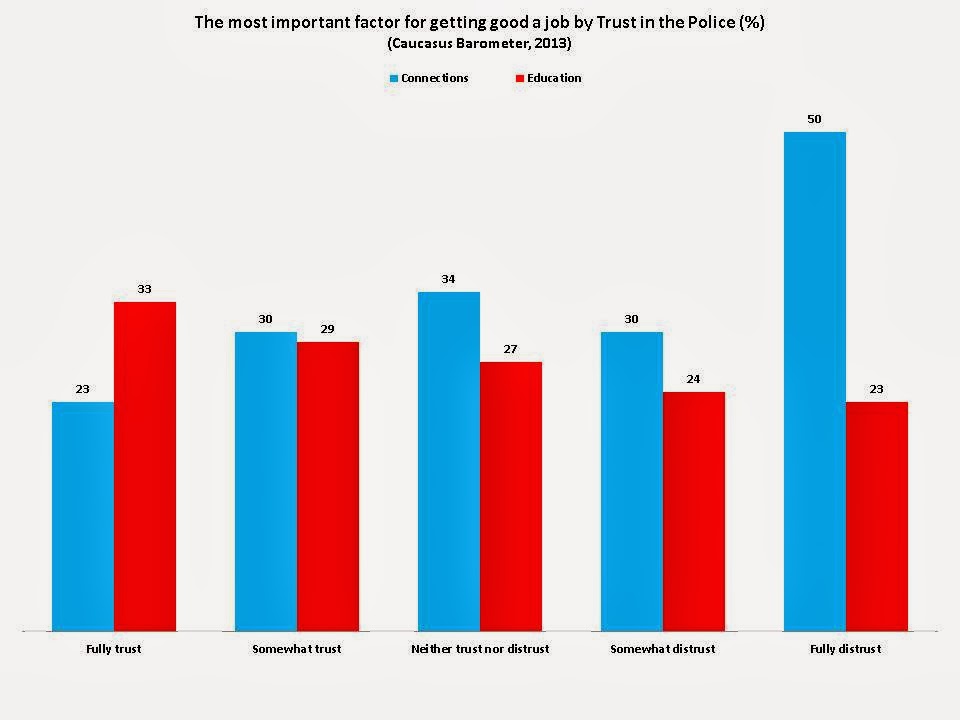
Note: Each column on the 1 (not at all likely) to 5 (very likely) scale originally summed to 100%. Additional factors, such as professional abilities/work experience, luck, hard work, talent, age, appearance, doing favors for the ‘right’ people, and other were also included as potential answer options. Together, these composed over a third of responses and have thus not been included in this chart for simplicity. Respondents were shown a card with possible answer options to choose from (including a don’t know, other and refuse to answer option). See this blog post for further information on other factors related to finding a good job in the South Caucasus.
Furthermore, those who felt they could not depend on someone close to them to help repair their living accommodations were more likely to report connections as the most important factor in getting a job-9% more often than those who said that it was very likely that they could expect someone to help them.

Trust in institutions is another interesting factor related to perceptions of the most important factor for getting a job. The following graph shows that of those who fully distrust the police, 50% perceive connections to be the most important factor for finding a good job. This compares to 23% of those who fully trust the police and think having connections is the most important factor for finding a good job. This trend is most pronounced when looking at trust towards the police. Yet, a similar pattern is found when looking at trust in the health care system, education system, court system, NGOs, parliament, executive government, political parties, media, local government, the religious institution one belongs to, the ombudsman, the EU, and UN.

Note: Factors other than education and connections were not included in the chart.
Another notable, but slightly weaker trend in the graph is that education is the most important factor for those who fully trust the institution of the police. This trend is also present when one looks at the cross-tabs between most important factor for getting a job and trust in the following institutions: healthcare system, education system, court system, NGOs, parliament, political parties, media, local government, the EU, and the UN. Interestingly, trust in banks does not show the same kind of relationship.
Is it possible that Georgians without connections are more likely to emphasize and perceive that connections are the most important factor in getting a job? What role does trust in institutions play when it comes to how one perceives finding work? How do the trends presented in this blog relate to social capital? The data-set used for this post is available online here, and you too can explore it to further understand what Georgians consider important for finding a good job. Also, take a look at our previous post on the CRRC blog.












